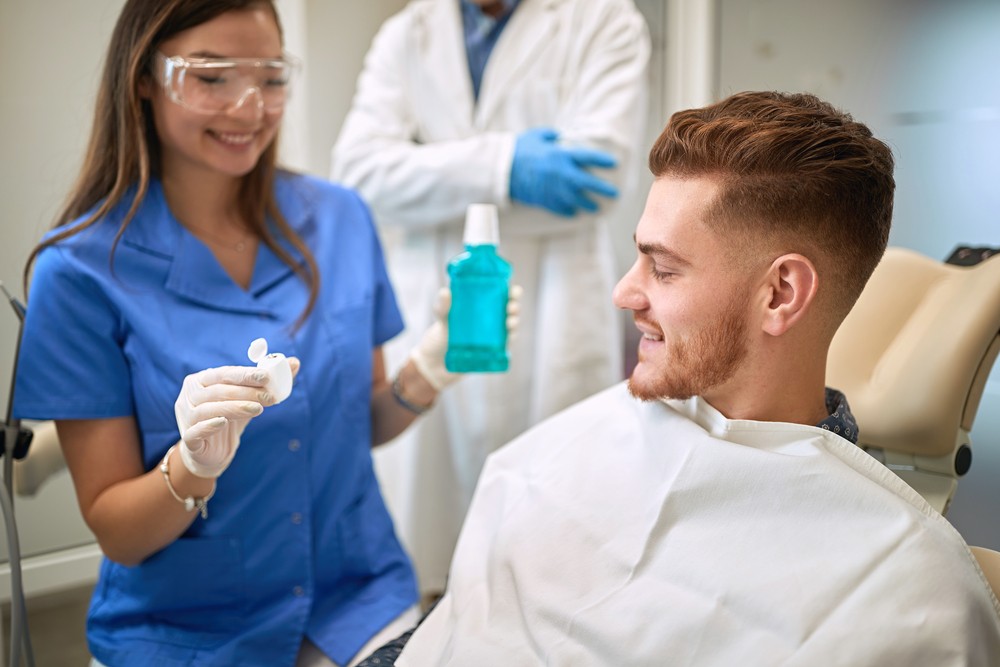
December 11, 2023, 5:56 am
Dental assistants play a pivotal role in creating a safe and comfortable environment for patients during dental procedures. Their responsibilities extend beyond providing chairside assistance to actively ensuring the well-being and safety of patients. In this blog, we'll explore the various ways dental assistants contribute to keeping patients safe in the dental office.
Infection Control Protocols:
Dental assistants are at the forefront of implementing and maintaining stringent infection control protocols. This includes proper sterilization of instruments, disinfection of surfaces, and adherence to universal precautions to prevent the spread of infections. By meticulously following these protocols, dental assistants contribute significantly to the overall safety of the dental environment.
Patient Education on Oral Hygiene:
Dental assistants play a crucial role in educating patients about proper oral hygiene practices. By providing clear and detailed instructions on brushing, flossing, and other preventive measures, they empower patients to take an active role in maintaining their oral health and preventing potential issues.
Preparation and Organization:
Before each dental procedure, dental assistants ensure that the treatment room is well-prepared and organized. This includes setting up sterile instrument trays, arranging necessary materials, and confirming that all equipment is in optimal working condition. A well-organized workspace contributes to a smooth and safe patient experience.
Chairside Assistance and Patient Comfort:
During dental procedures, dental assistants provide chairside assistance to the dentist. This includes passing instruments, managing suction, and ensuring the patient's comfort. By being attentive to the needs of both the dentist and the patient, dental assistants contribute to the efficiency and safety of the treatment process.
Monitoring Patient Vital Signs:
In certain procedures, such as sedation dentistry or oral surgery, dental assistants may be responsible for monitoring patient vital signs. This includes tracking blood pressure, pulse, and oxygen saturation levels to ensure the patient's safety and detect any signs of distress promptly.
Emergency Response Preparedness:
Dental assistants undergo training in emergency response procedures, including Basic Life Support (BLS) certification. In the rare event of a medical emergency, they are equipped to initiate immediate response measures, perform CPR if necessary, and coordinate with the dental team to ensure the patient's well-being.
Patient Screening and Medical History Review:
Before any dental procedure, dental assistants conduct thorough patient screenings and review medical histories. This information helps identify any potential contraindications or allergies that may impact the safety of the treatment. By being diligent in these pre-treatment assessments, dental assistants contribute to patient safety.
Radiation Safety Protocols:
In practices that use dental radiography, dental assistants are responsible for implementing radiation safety protocols. This includes ensuring that patients are appropriately shielded and that the necessary precautions are taken to minimize radiation exposure. Strict adherence to these protocols is crucial for both patient and staff safety.
Post-Operative Care Instructions:
After dental procedures, dental assistants provide patients with clear post-operative care instructions. This includes guidance on managing discomfort, caring for treated areas, and recognizing signs of potential complications. Comprehensive post-operative instructions contribute to a smooth recovery process for patients.
Maintaining Confidentiality and Privacy:
Dental assistants uphold patient confidentiality and privacy at all times. This includes safeguarding patient records, discussing treatment plans discreetly, and ensuring that sensitive information is not disclosed without proper authorization. Respecting patient privacy is an integral aspect of patient safety.
Conclusion
Dental assistants are unsung heroes in the dental office, working diligently behind the scenes to ensure the safety and well-being of every patient. From implementing infection control measures to providing chairside assistance and being prepared for emergencies, their multifaceted role is instrumental in creating a secure and comfortable environment. The commitment of dental assistants to patient safety contributes to building trust and fostering positive experiences, ultimately leaving patients with smiles that reflect both oral health and peace of mind.
